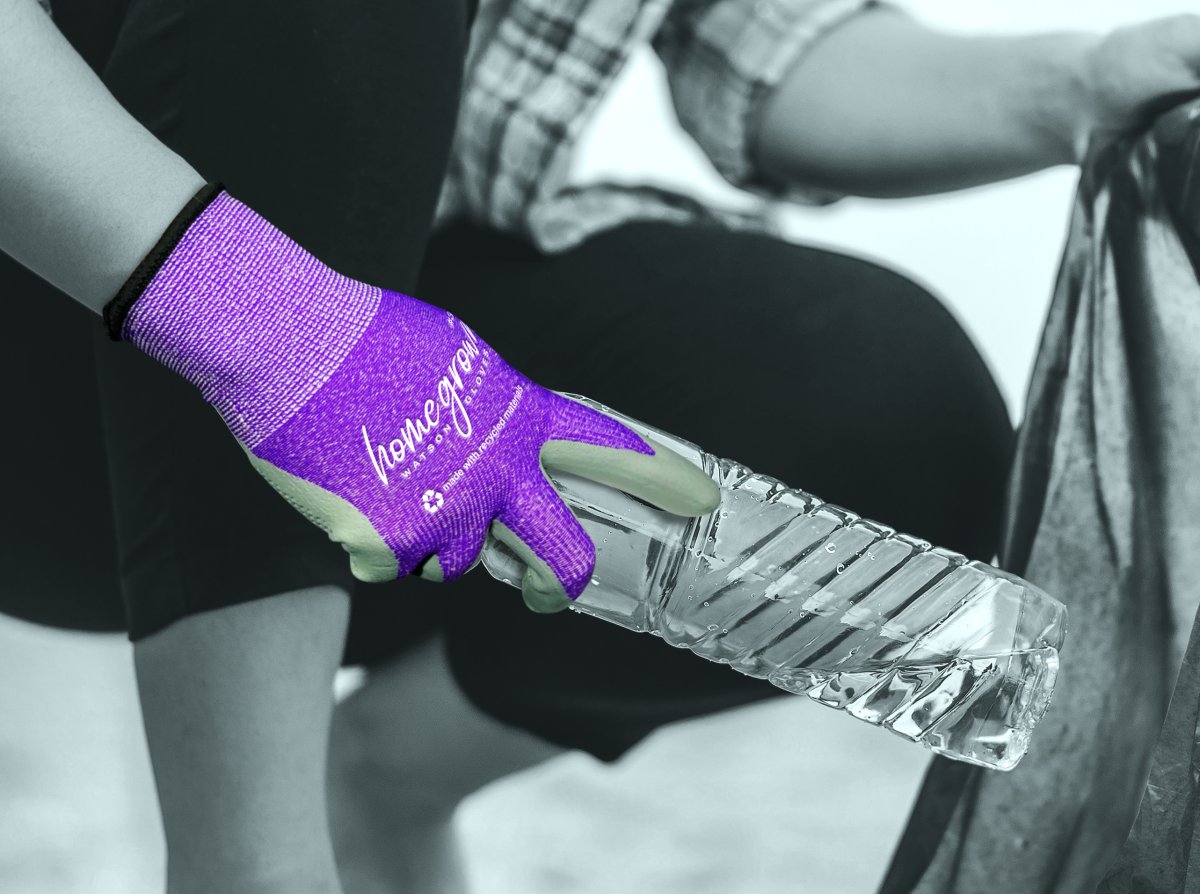Personal protective equipment (PPE) is in higher demand than ever given COVID-19 fears. People are now using 129 billion face masks and 65 billion disposable gloves every month, according to estimates from one study published in Environmental Science & Technology. The resulting waste could spell disaster for the environment, considering a single nitrile, or synthetic rubber, glove takes more than 200 years to degrade in a landfill.

Canadian company Watson Gloves couldn’t predict the pandemic PPE needs, but its employees did recognize that after a century in business, they could be doing better with their environmental footprint.
Two years ago, Michele Moore, the company’s director of media and corporate social responsibility, along with the executive team, decided to start their sustainability journey, as they saw the waste that was being created by manufacturers and consumers as well as the increasing demand for more eco-conscious products.
In partnership with Watson Gloves, we look at how the Burnaby-based Canadian company is taking big steps to change their business with a new mindset and sustainable hand-protection.
Expanding a trusted product line
Moore says the company began with baby steps, through initiatives like improving their recycling program, composting food scraps and switching to biodegradable poly bags. But the biggest piece of the puzzle was the gloves themselves.
First, Watson Gloves turned to their popular Grease Monkey line of disposable products that contain latex and nitrile. In 2018 they launched Green Monkey, a disposable glove that uses an additive called Reclaim, which accelerates the product degradation time in landfills to 10 years rather than 200-plus.
According to Christina Yeung, product development manager at Watson Gloves, launching the Green Monkey line involved more than doing proper testing of the additive. It also meant educating customers on the biodegradation process while ensuring the same quality, performance and price point.
“The beautiful part about the sustainable product is that it involves no change for our consumer behaviour in any way. They can use our biodegradable disposable gloves the same way as regular gloves. But when they get disposed of into a landfill, that’s when the magic happens. They will biodegrade faster and turn into renewable energy while leaving no microplastics behind,” Yeung says.
“We are very fortunate that we launched Green Monkey two years ago,” adds Laura Whitlock, director of marketing and innovation. “Because of the pandemic, there’s a huge demand, which also means increased waste for disposable gloves. We’re happy to be able to help combat that waste and give consumers a sustainable option when purchasing disposable gloves.”
READ MORE: Plastic waste from personal protective equipment — the other coronavirus plague
Making a solid commitment to sustainability
Following the launch of Green Monkey and overwhelming support in the market for sustainable hand protection, Watson Gloves wanted to expand their eco-conscious offering. In 2020, the company debuted gloves made from WasteNot yarn, which is 23 to 96 per cent post-consumer recycled plastic bottles. They turned WasteNot yarn into industrial gloves as well as gardening gloves for the whole family.
Whitlock says the original planned launch date for the line was the middle of March, but then the pandemic hit in Canada. When WasteNot launched a month later, the timing turned out to be in the company’s favour.
“It actually was a perfect time to launch, because a lot of people were at home looking for gardening gloves,” she says. “We saw an increase in customers who took on a new hobby building gardens and growing vegetables in their backyards. Online shopping also increased dramatically, and our new sustainable gloves were available online and could be delivered right to people’s homes if they were not able to visit a retail store.”
With more than 2,000 styles of gloves, the company is looking at emerging technologies, materials, supply chains and overall availability as avenues for change.
“We are just starting our journey and will take years to get to where we want to be,” Yeung says. “Our goal is to increase the sustainability offering across all our product lines. One day we hope to get to the point where maybe we can look back and say 90 per cent of our gloves are sustainable. But at this point, we have to do what makes sense for us and roll forward when sustainable raw materials become available, as opposed to changing everything all at once.”
With the Canadian government planning a ban on all single-use plastics in 2021, and with the world more aware of the plastics problem, Moore says she’s glad the company began creating a more sustainable future when it did. Her own grandfather started with the company in 1922, four years after Watson Gloves was founded, and her father and brother are both former presidents. Ensuring the company is still around for 100 more years isn’t just business to her — it’s part of her family legacy.
READ MORE: Ottawa pushing ahead with plan to ban single-use plastics by end of 2021
To learn more about or try Green Monkey biodegradable disposable gloves and gloves made with WasteNot yarn, visit Watson Gloves.


![5559PF Green Monkey [Watson Gloves Supplied]](https://globalnews.ca/wp-content/uploads/2020/11/Green-monkey-Hero-Image-1.jpg?quality=85&strip=all&w=1200)
![9382 Lady Baa Baa [Watson Gloves Supplied]](https://globalnews.ca/wp-content/uploads/2020/11/Unknown-1.jpeg?quality=85&strip=all&w=1200)